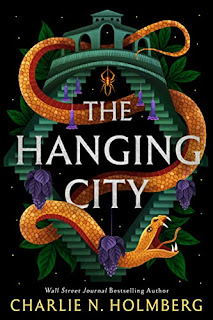Review of "By Light of Hidden Candles" by Daniella Levy - Jewish soulsearching and a quest to discover the past

It has been quite some time ago that I was given this novel to review. I started reading and then completely forgot about it. One of the good things of a phone dying on you is that when you have to set up the new one you discover a book you still have to read :)
The title "By the light of Hidden Candles" refers to how converso's (Jews who had converted to Catholicism) for generation and generations maintained their religion in secret.
The book tells two separate stories but it is easy to understand that somewhere those tales will come together.
It starts with old grandmother Miriam telling a story to her granddaughter in Morocco. She was a Jewish girl living in Spain in the 15th century. The Inquisition was bearing down on the converso's and the Jews who helped them and they were already driven from their original town. Her life and that of her father become in even more danger.
The other story is a contemporary one. Alma, an orthodox Jewish American student, and Manuel, an catholic immigrant from Spain, who wants to become a priest, both follow a course about Spanish heritage in college. They are offered the opportunity to do research in Spain as a kind of summer project. Alma wants to find the descendant of the owner of the gold ring that has passed down 26 generations of Jewish women and which according to family lore belonged to the Christian man who saved their ancestor. Manuel wants to find his own ancestors as his father who died very young always claimed they came from nobility.
You can see the plot coming can you not?
A large part of the book is spend on Alma explaining her Jewish faith and habits to Manuel. He joins her in the synagogue and has sabbath meals with the rabbi and the other local Jews. Manuel is very interested in religion and Alma is not wanting to put any water in the wine so to speak so they have to travel with a whole suitcase with kosher food and pots and pans.
The book certainly gives you a nice introduction into Orthodox Jewish daily life and also a bit into the religion.
However it is very clear that it is written from a Jewish point of view. I got quite sick of Alma's righteousness in the beginning. She definitely sees the Jews as the Chosen Ones and only them. But luckily the Jewish heaven is also open for others.
I am raised as a Christian protestant so am neither Jewish nor Catholic. I can understand the resentment against the Spanish Inquisition and all what came with it. I hail from a country that also felt the oppression of the Spanish Catholics of those days and also here people got burned at the stake. It was one of the reasons my country fought a war of Independence. But the fact that even in the 21st century religions deems interfaith marriages forbidden and even worse not offering the possibility to convert makes me very uncomfortable. One could choose to raise children in a certain religion could one not? A person is free to choose for himself is he not? But that is my protestant upbringing speaking. However the way Alma and her family look towards non-Jewish lovers almost sounds racist to me. At least Miriam made a choice because she wanted to be able to practise her faith. I was also surprised to see the interreligious marriage ban and the khoser food rules explained as a way to preserve a Jewish people without the risk of complete integration with the rest of society. I always thought it was because it was written down in the Torah .
Not only does Alma not have any interest in the Christian religion of Manuel also the writer is not delving into that.
The plot is not that complex but the book is an interesting view into Orthodox Jewish daily life, gives some glimpses of Spain and is sometimes funny.
--SPOILER ALERT --
I thought the reasoning "Oh I am Jewish by blood so now I will switch faiths" quite shallowly done. Someone where catholic doctrine is ingrained on for decades does not only have to change views on Jesus but also on Catholic things like the Virgin Mary worship and the whole culture around holy women and men - the saints. I understand that the writer is Jewish but Christianity is more then 'do you believe in trinity or not'.
In the book Fes is described as a desert and the Jews live in mud huts. Somewhere else moving to Morocco is also described as a bad option. I wonder if that is influence of the very anti-Arab views one sees nowadays under certain American Jewish circles. I have been in Fes and in the Mellah. Fes is not in the desert and was for long time the capital. Moorish or Arab culture was in the days of Miriam a lot more advanced as the medieval Christian one. Also the Ottoman sultan thanked the Spanish rulers sarcasticly when he offered the Jews and the Moors a place to live when Spain banished them saying Spain was sending him their best people.
Another thing I found odd was that the woman who had Jewish ancestors and lived kosher did not seem to know why while she even lighted sabbath candles. Maybe that was a glitch in the story.
All in all a 5 out of 5 stars





Comments
Post a Comment